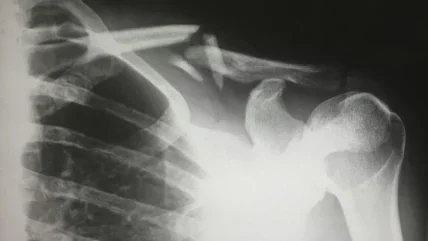
The National Institute for Health and Care Excellence (NICE) has recommended using artificial intelligence (AI) technologies to help doctors detect broken bones on X-rays.
NICE has issued a draft guidance that suggests using four AI technologies to assist in fracture detection in urgent care settings.
An independent NICE committee recommends using TechCare Alert, BoneView, RBfracture, or Rayvolve tools to assist trained healthcare professionals in detecting fractures on X-rays in urgent care settings.
This recommendation allows for the use of these technologies in England while further evidence is gathered on their real-world benefits.
According to the UK’s non-departmental public body, AI technologies may enhance fracture detection on X-rays in urgent care, improving accuracy without increasing the risk of misdiagnosis.
It could reduce care variation across the country, minimise missed fractures at initial assessment, and prevent further injuries during the wait for treatment decisions.
NICE HealthTech director Mark Chapman said: “Every day across the NHS thousands of images are interpreted by expert radiologists and radiographers, but there is a high vacancy rate within these departments across the country and more support is needed to manage their workload.
“These AI technologies are safe to use and could spot fractures which humans might miss given the pressure and demands these professional groups work under.
“Using AI technology to help highly skilled professionals in urgent care centres to identify which of their patients has a fracture could potentially speed up diagnosis and reduce follow up appointments needed because of a fracture missed during an initial assessment.”
The committee highlighted that these AI technologies are low risk, as each image is reviewed by a healthcare professional alongside the AI. This lowers the likelihood of unnecessary referrals to fracture clinics.
An independent review by the radiology department will still be conducted.
A consultation on the draft recommendations is now underway. Following this, the committee will evaluate the responses and may adjust their recommendations before final guidance is published.
Recently, science secretary Peter Kyle launched a new Regulatory Innovation Office (RIO) to accelerate public access to new technologies, including AI in healthcare to emergency delivery drones.
In January this year, NICE recommended the use of talazoparib to treat a form of locally advanced or metastatic breast cancer.






